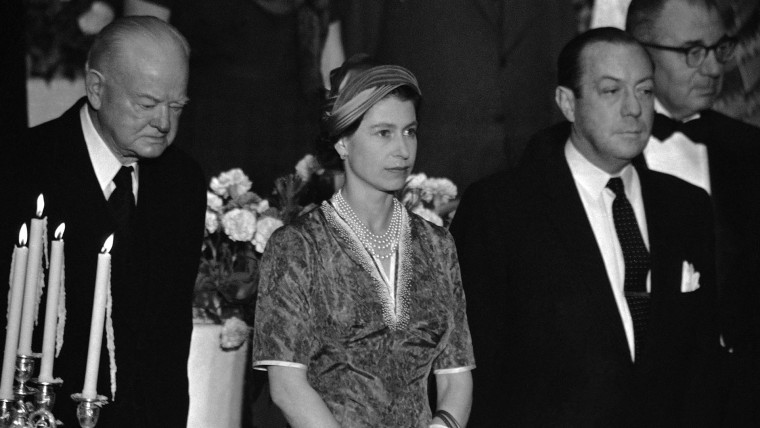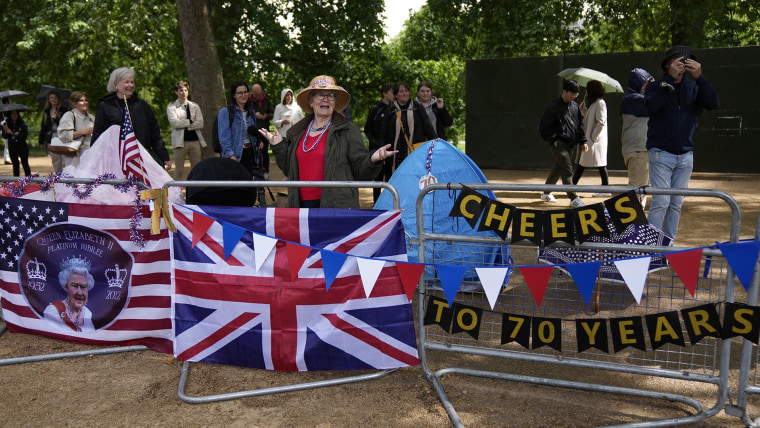There will be an unspoken undercurrent this week, however.
Though few will mention it aloud, Britain is now bracing for the queen’s inevitable passing.
It may not come for years, but the aging monarch has canceled a bundle of recent events due to poor health, including catching Covid in February. It’s unclear which events she will attend this week, and those she does may see her take on a reduced role.
Her death will thrust a fragile royal family — and country — into the unknown, an event of such unprecedented significance that it’s somewhat difficult to comprehend.
In the past three years, the family has again been rocked by scandal, infighting and the death of the queen’s husband, Prince Philip, at age 99 last year.
After a relatively successful decade buoyed by the wedding of Prince William and Kate, the Duchess of Cambridge, and the popularity of the Netflix show ‘The Crown,’ the royals’ rough ride began in early 2020. William’s brother, Prince Harry, and his wife, Meghan, announced they were stepping back as front-line royals, culminating in an interview with Oprah Winfrey a year later in which they portrayed the royal “firm” as uncaring and even racist.
Meanwhile, Prince Andrew, the queen’s son and Prince Charles’ brother, has faced allegations that he sexually abused a 17-year-old who had been trafficked by the financier and sex offender Jeffrey Epstein. The case was recently settled out of court.
Closer to the throne, Charles is less popular than his mother but has taken on an increasingly prominent role of late, such as standing in for her last month at the opening of Parliament, one of the key duties for the ceremonial but politically powerless head of state.
And this all comes at a time when the United Kingdom is grasping for its place in the world after Brexit; some of its former colonies want to wash their hands of the royals; and rising separatist tensions in Scotland and Northern Ireland threaten to fracture the U.K. into pieces.
The country has hemorrhaged power during Elizabeth’s rule, and has come to rely on her for its identity, unity and relevance on the global stage.
Polls suggest the queen is indeed hugely popular, and a survey this week by the pollster YouGov found 62 percent of Britons want to keep the monarchy.
But the queen’s death is “going to lead to lots of sort of existential questions” for Britain, royal commentator Daisy McAndrew said. “Who are we? What do we stand for? What is modern Britain?” she added, “Do we want Charles? Do we want a monarchy?”
Not everyone will be celebrating this week, of course.
While the country might seem awash with royalism, 56 percent of Britons said they had no plans to celebrate the jubilee at all, YouGov said in another survey last week. Deeper than that, another 41 percent of 18-to-25-year-olds told YouGov last year that they wanted to replace the royals with an elected head of state.
The picture is equally fractious in the Commonwealth, a loose association of 54 nations, mostly former British colonies, 15 of which still retain the queen as the head of state. That became one fewer last year after Barbados ditched the queen, while the Duke and Duchess of Cambridge were met with protests earlier this year during a tour of the Caribbean.
With disquiet bubbling among young people about the royal family’s historic links to the slave trade and other issues, Anna Whitelock, a professor of history of the monarchy at the City University of London, believes more countries will follow Barbados when Charles becomes king. “Flying in, greeting a few people, seeing a few things and then flying out again just looks really tokenistic and really bad,” she said. “It’s not really sustainable for very much longer.”
In what may be an attempt to counter this narrative of a family of white aristocrats ruling over its subjects, Sunday’s Platinum Pageant will feature Bollywood performers and an interpretation of the queen’s 1953 coronation in an “Afro Caribbean carnival style.”
The optics really matter because, at their heart, these occasions are “PR opportunities,” McAndrew said. “They’re an opportunity to remind the public, or remind the Commonwealth, or remind the world that the royal family is still there, that the royal family has a future.”
Nevertheless the general mood this week, in the U.K. mainland at least, will be one of universal acclaim and deference.
The queen actually reached her platinum jubilee Feb. 6, exactly 70 years after her father, King George VI, died while she was in Kenya on a Commonwealth tour.
There have been scatterings of events this year, including 20 million wildflower seeds sown in the moat of the Tower of London, a competition to bake for the queen a “Platinum Pudding” (a lemon and Swiss roll amaretti trifle baked by contestant Jemma Melvin), and eight towns receiving city status.










Recent Comments